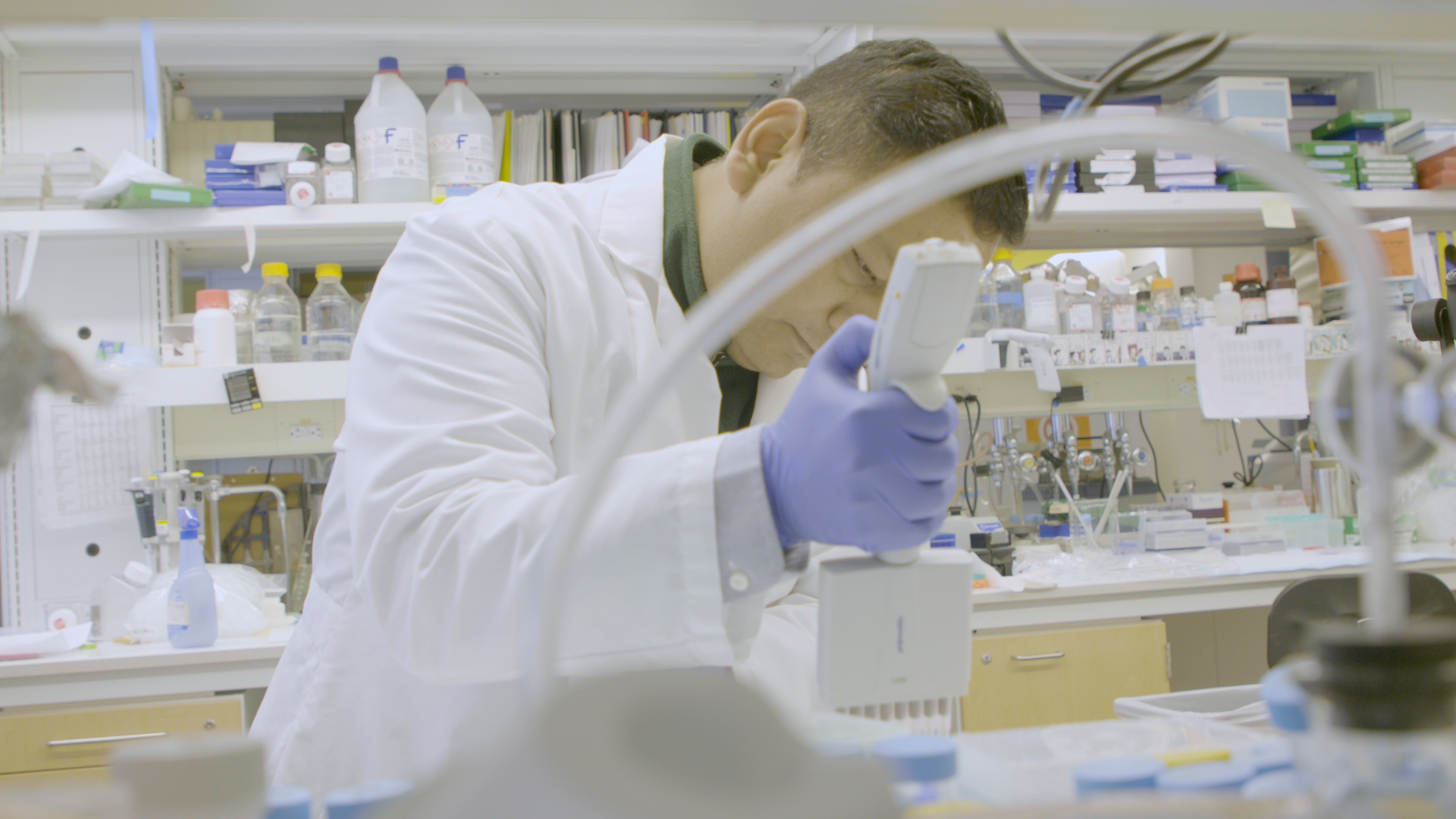
It’s a devastating statistic: 1 in 4 people with type 1 diabetes (T1D) are affected by kidney disease. But thanks to Monika Niewczas, M.D., Ph.D., M.P.H., and Manoj Gupta, Ph.D., of Joslin Diabetes Center in Boston, we’re making headway in the fight to prevent kidney disease altogether. They are finding ways to diagnose kidney disease earlier and faster, with the ultimate goal to help improve health outcomes for people with T1D, so they can be happier and healthier.
Please join us for an inside look, as we present the sixth video in our seven-part series Inside the Lab at Boston. See Drs. Niewczas and Gupta give a first-hand overview of the passion, the obstacles and the hope that kidney complications research may have for the T1D community, and how they and Breakthrough T1D are helping to advance the field.
If you haven’t seen the other featured videos in this series already, don’t miss out. See how scientists are collaborating to expedite the process of finding cures and improving lives:
- Boston: A Global Leader of Type 1 Diabetes Research is an overview of the leading scientists and institutions for T1D investigations in Boston and Breakthrough T1D’s role in shaping and supporting this research.
- Beta Cell Replacement Research in Boston looks at the collaborations and skills that researchers in Boston are using to tackle the complex task of replacing beta cells in people with T1D.
- Beta Cell Regeneration Research in Boston asks: Can we internally regenerate and protect existing beta cells, and therefore find cures for T1D?
- Prevention Research in Boston shows experts that are working to delay T1D, or stop it before it starts.
- Immune Therapy Research in Boston asks: Can we redirect the body’s immune response to find cures for T1D?
Don’t forget to check back next week, when we highlight Eye Complications Research in Boston, featuring Jennifer Sun, M.D., M.P.H.
Funding kidney complications research is one of Breakthrough T1D’s most critical undertakings, essential in our mission to find cures for type 1 diabetes. Please consider donating today, and we’ll turn type 1 into type none, with your support.